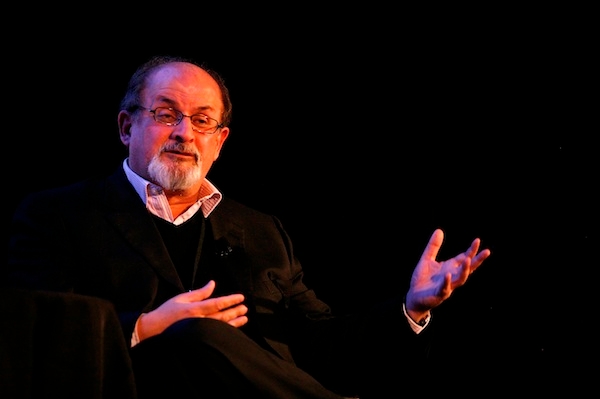All roads lead back to Salman Rushdie. At least, that’s what the Iranian Ayatollahs would have you believe. Following last week’s furore over a poorly made YouTube video which mocked the life of the Prophet Mohammed, the Iranians are baying for Rushdie again.
Ayatollah Hassan Sanei, who leads a semi-official foundation to honour the memory of Ayatollah Khomeini, has upped the bounty for Rushdie’s assassination by $500,000. The overall pot now stands at $3.3 million.
What has Rushdie to do with the poorly produced film of a convicted Egyptian fraudster? Well, nothing – but then clerical fascisms seldom concern themselves with the trivialities of reason. Sanei believes that Rushdie set the trend for insulting Mohammed, a supposed pioneer of new insults and ridicule. The Iranian press has quoted him as saying:
As long as the exalted Imam Khomeini’s historical fatwa against apostate Rushdie is not carried out, it won’t be the last insult. If the fatwa had been carried out, later insults in the form of caricature, articles and films that have continued would have not happened.
One could be charitable towards Sanei and blame the largesse of Iranian state censorship for blinding him to centuries of medieval, particularly Byzantine, literature where Mohammed is depicted in less than glowing terms.
From Saint John of Damascus through to Christian chroniclers of the Crusades, there exists a long line of critical material predating Rushdie. Dante even condemned a mutilated and mangled Mohammed to hell in the Inferno.
As if to really rile the Ayatollahs, Dante didn’t stop there.He ensured Mohammed was accompanied by his cousin and son-in-law, Ali ibn Ali Talib – ironically, one of the most revered figures in Shia Islam. Both are sinners, cut in half for their disobedience to God.
How mutilated, see, is Mahomet;
In front of me doth Ali weeping go,
Cleft in the face from forelock unto chin;[Dante’s Inferno, Canto 28]
But if Sanei could be forgiven for having a poor grasp of the classics, what’s his excuse when it comes to current events? He supposes that if Rushdie had been killed for writing the Satanic Verses then further insults against the Prophet Mohammed wouldn’t have occurred. Yet, the killing of Dutch filmmaker Theo van Gogh in 2004 provoked outrage and the now infamous Mohammed cartoons followed.
My colleague Nick Cohen has noted ‘The fatwas and the murders, the book burnings and the bombings did not stop The Satanic Verses’. They did not, but the manic mobs which torched embassies across much of the Middle East last week will have cowed many into self-censorship. Sanei’s renewal of the original fatwa against Rushdie is part of that trend, underscoring the need to stand against the diktats of robed reactionaries.






Comments